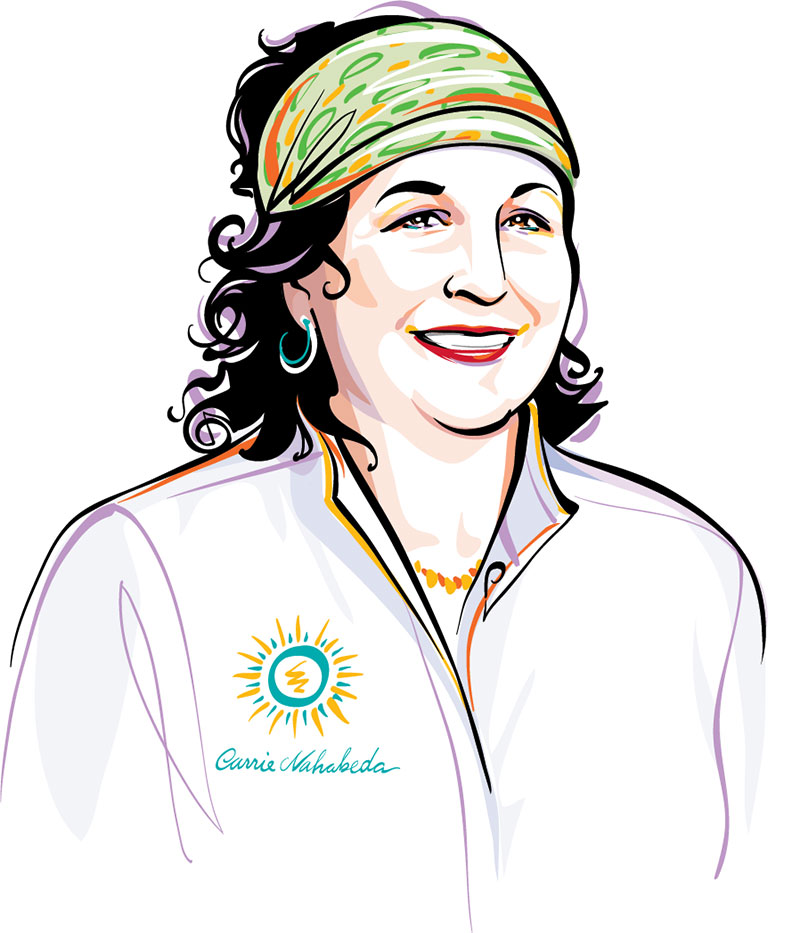
After the shutdown was announced, I went to Florida to relieve my sister, who’d been caring for our 91-year-old mother. When I got back May 30, mentally ready to open Brindille for outdoor dining, the riots had started, and the restaurant was severely damaged. You have to remember, Brindille was architecturally designed. It won best design from the James Beard Foundation. Everything in it is handcrafted, all custom. The main window was broken. They’d smashed all the wood and metal and defaced all the paint. The entire months of June and July were spent repairing the damage.
If you make the decision to stay open through the pandemic, you constantly have to adapt. It’s hard enough making money at 100 percent occupancy, let alone 25 percent. You’re seeing just how fragile the system is; only the adaptable survive.
As a chef, if you’re tired, unhappy, or feel unappreciated, you have to find a way to get over that. Because cooking is highly personal and it will come through in the food.
My mantra to my cooks has always been: Cook as if you’re cooking for yourself.
Before dinner service, I always go to the restroom and throw water on my face, put a fresh chef coat on, some lipstick, drink a glass of water, and say, “OK. We’re on.”
My father was 93 when he died, 74 years after being wounded in World War II and as a direct result of those wounds. He was the backbone of my life. He had so much honor and integrity. I often wonder: If he hadn’t been at Normandy in World War II, if he didn’t get wounded and taken in by the underground and learn French, if he didn’t start laying carpet at the Ritz-Carlton in Chicago and speak French to the chefs there and tell them he was part of the liberation and say, “My daughter loves to cook, can she come here?” — would I be where I am?
I have an enormous amount of energy and can live on almost no sleep. I think it’s my natural state of being.
When you get to a certain level, there are only so many people you can talk to. Charlie Trotter and I mentored each other professionally. It was an intense relationship. We shared an obsessiveness about attention to detail.
I would rather have every food critic and difficult customer come in than any Armenian we know, because they are so highly critical. To this day, I get nervous when any of our family members dine, specifically my mother. She is a diva.
In our business, you have two types of cooks: ones who want to work at night and ones who want to work during the day. Cooks who work at night always look down on the cooks who work during the day, because all they do is prep and lunch. If you’re a serious line cook, like I was coming up, you want your station to get hammered every single night.
The best lesson I’ve ever learned was from my mentor at the Four Seasons, Fernand Gutierrez. If you looked up “French chef” in the dictionary, Fernand’s picture would be there — big guy, big mustache, toupee. Smoked four packs a day, drank like a fish, and beyond passionate for cooking. His lesson was: You’ve got to be true to your craft. So no matter what you do — like if you’re learning Indian cuisine — you’ve got to respect how it evolved.
At Naha once, a man started off with five people at his table, and one by one they basically told him what they thought of him until he was left all by himself. I don’t remember what it was about, but I do remember that a number of people threw liquid in his face. He never stopped the service, so then all the food came out.
My father used to tell me, “The higher up you go in your career, the farther you get from what made you great in the first place.” That’s part of why I still cook.


